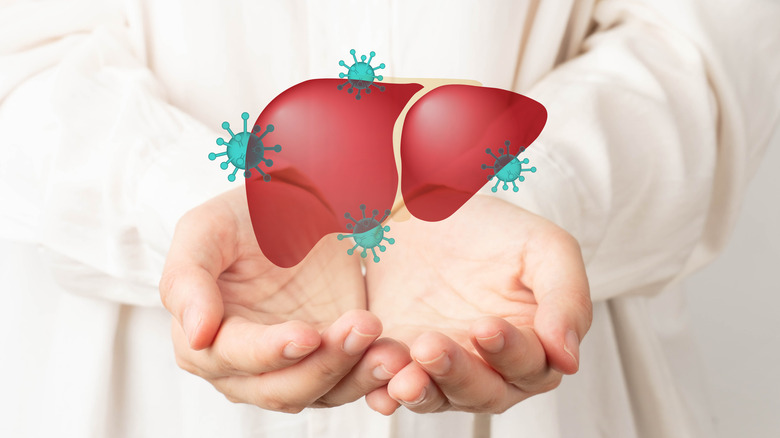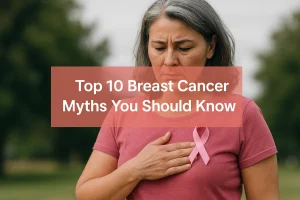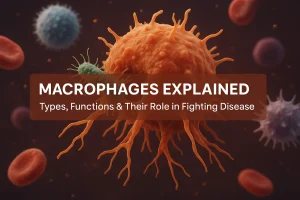
Liver Cancer Diet Plan: Best Foods to Eat & Avoid During Treatment
Liver cancer, particularly hepatocellular carcinoma (HCC), is among the most common types of liver disease worldwide. Nutrition plays a crucial role in preventing and managing liver cancer. While no diet can cure cancer, eating the right foods can support the body’s healing process, reduce complications, and improve overall quality of life.
This article explores evidence-based dietary recommendations for liver cancer patients—including what to eat, what to avoid, and how to manage common side effects of treatment through smart nutrition.
Why Diet Matters in Liver Cancer
People who already have liver damage, such as cirrhosis from hepatitis B, hepatitis C, or alcohol abuse, are more likely to develop liver cancer. When the liver is damaged, nutrient absorption, metabolism, and energy production are hampered. Poor nutrition can weaken the immune system, delay recovery, and worsen prognosis.
By adopting a nutrient-dense, balanced diet, patients can:
- Keep your energy levels up.
- Support liver function.
Reduce treatment side effects - Promote healing and tissue repair
- improves the chances of survival
Best Foods for Liver Cancer Patients
1. Whole Grains
Whole grains like brown rice, oats, and quinoa, which are high in fiber and B vitamins, promote intestinal health and lessen inflammation in the liver. Studies found that high whole grain intake lowers the risk of liver cancer mortality.
2. Legumes (Beans, Lentils, Chickpeas)
Plant-based protein, fiber, and vital nutrients are abundant in legumes. 8–40 grams per day may lower the risk of liver cancer and boost immunity while undergoing treatment.
3-Veggies and Fruits
Colorful fruits and vegetables are high in antioxidants, vitamins, and phytochemicals, which can protect cells from cancer damage. Broccoli, cabbage, cauliflower, and other cruciferous vegetables are particularly good for liver detoxification.
4. Fatty Fish
Fish like salmon, mackerel, and sardines are rich in omega-3 fatty acids, which have anti-inflammatory effects and may protect liver cells, particularly in hepatitis-related cancers.
5. Eggs and Dairy
Eggs and Greek yogurt are rich in protein and can help maintain muscle mass, which is crucial during treatment and recovery.
Foods to Avoid for Liver Cancer Patients
1. Aflatoxin-Contaminated Foods
Moldy grains, peanuts, spices, and dried foods contain aflatoxins, which are cancer-causing toxins. Avoid poorly stored or expired products.
2. Red and Processed Meat
A higher risk of liver cancer is associated with consuming large amounts of processed meat (bacon, sausages) and red meat (beef, pork). These meats are high in saturated fats, preservatives, and iron, which can worsen liver damage.
3. Alcohol
Alcohol can interfere with cancer treatment and directly stress the liver. Complete avoidance is strongly recommended.
4. Sugary and Fried Foods
These can lead to weight gain, diabetes, and fatty liver—all of which worsen liver cancer outcomes.
Diet Tips During Liver Cancer Treatment
During Chemotherapy
- Eating frequently and in small portions helps control appetite loss.
- Eat more protein-rich snacks, such as protein smoothies, Greek yogurt, and boiled eggs.
- Drink plenty of water, especially if you have diarrhea or vomiting.
- Soft foods like mashed sweet potatoes, soups, and rice porridge may be easier to eat during nausea or mouth sores.
After Liver Surgery
- Make your food choices easy to digest, such as fruits like papaya and bananas, broth-based soups, and soft vegetables.
- Give priority to nutrients that are good for the liver, like fiber from legumes, vitamin K from leafy greens, and vitamin A from carrots.
- Avoid spicy, oily, or processed foods that may cause inflammation.
- Following your doctor’s advice, gradually resume eating complex meals.
Are Alternative Diets Beneficial or Dangerous During Cancer?
Many patients are tempted by popular cancer diet that promise miracle cures. Here’s a breakdown:
- Alkaline Diet: Its impact on cancer is not well supported by evidence.
- A ketogenic diet: It may be helpful for certain types of cancer, but it requires medical supervision.
- Intermittent Fasting: May help regulate insulin, but not suitable for all, especially during chemotherapy.
Always consult your oncologist or dietitian before following any of these diets.
Expert Advice on Supplement Use
Supplements may be prescribed for specific deficiencies (e.g., vitamin B12, D), but high-dose antioxidants or herbal remedies can interfere with treatment.
Doctor’s Tip: Do not take any supplement, herb, or diet pill without consulting your doctor, as it may worsen liver function or reduce chemotherapy effectiveness.
Conclusion
When it comes to liver cancer management, nutrition is crucial. A well-planned diet can help with healing, strength, and minimizing side effects, but it cannot take the place of medical treatment. Always follow the advice of your oncologist and clinical dietitian for a plan that fits your medical needs.
FAQs
Can diet alone treat liver cancer?
No. Diet is supportive but not curative. Medical treatment (surgery, chemotherapy, and immunotherapy) remains essential.
Should I avoid all fats?
No. Healthy fats from nuts, seeds, olive oil, and fatty fish are beneficial. Avoid saturated and trans fats.
Are fruits safe during treatment?
Yes. Fresh, well-washed fruits are encouraged for vitamins and fiber. Avoid unwashed or raw produce if immunity is low.
What if I can’t eat due to nausea or fatigue?
Try soft, bland, high-calorie foods in small portions. Nutritional shakes and smoothies can also help.
Is coffee or tea safe to drink?
Moderate coffee may offer liver protection. Herbal teas like ginger or peppermint may ease nausea, but avoid excessive caffeine.







